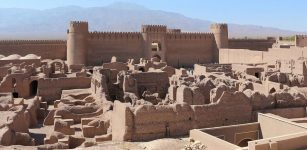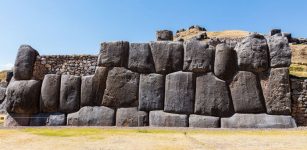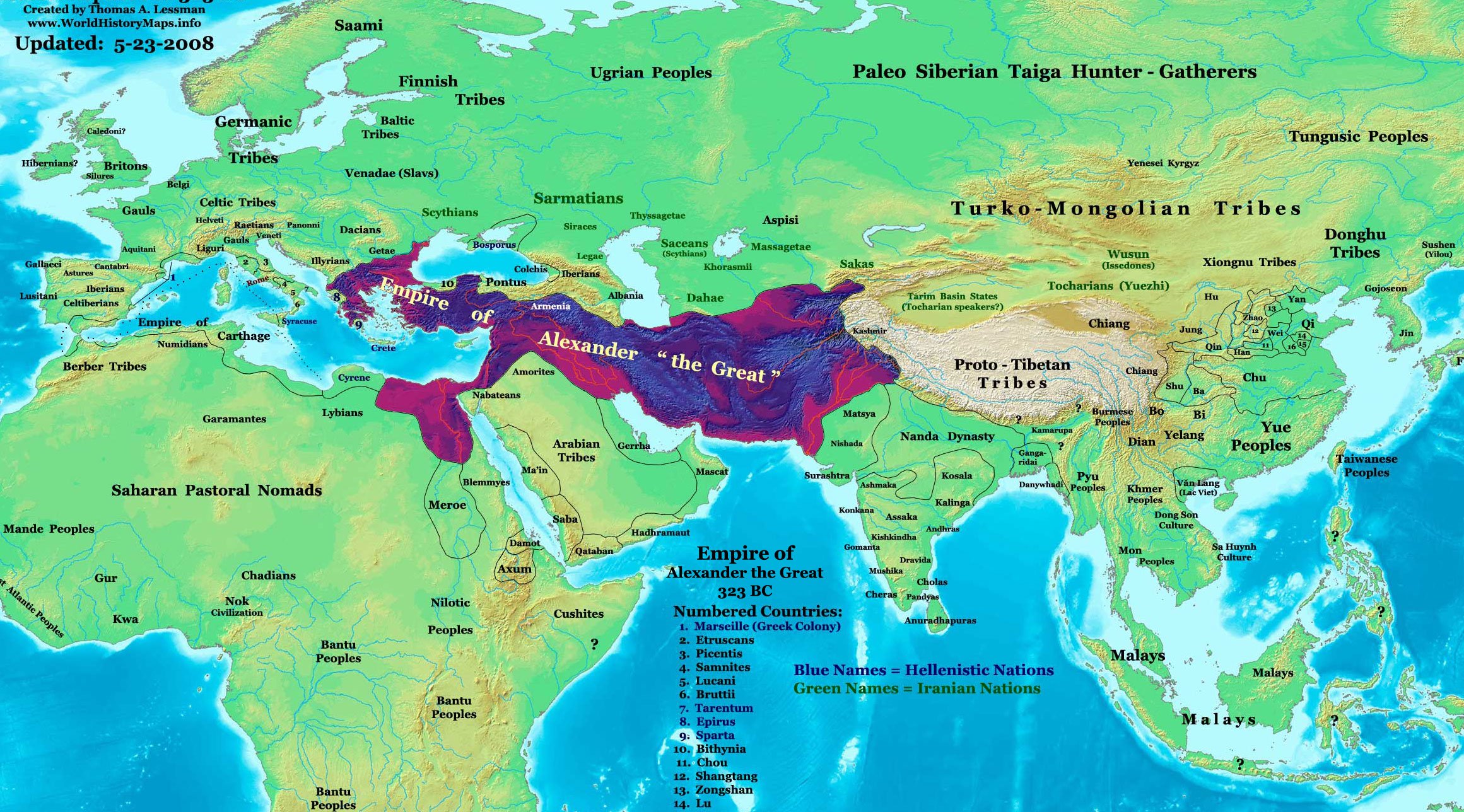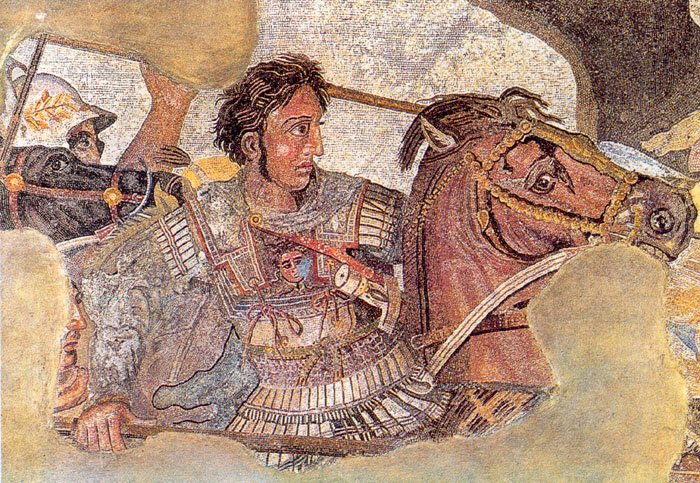How Did Alexander The Great Die?
Ellen Lloyd - AncientPages.com - For years historians have been trying to solve one of the greatest ancient mysteries of all time, namely the death of Alexander the Great. Many speculations have been put forward, but we still cannot answer the question: How did Alexander the Great die?
Scientists think they might know what caused his death, but they cannot prove it.
Alexander the Great, the Greek King of Macedon and ruler of one of the largest empires in the ancient world died in 323 B.C. at the palace of Nebuchadnezzar II in Babylon when he was only 32 years. But what exactly caused his death remains unknown. Alexander the Great had a high fever for several days. He was unable to speak and walk. Twelve days later he was dead.
Alexander's empire was the largest state of its time, covering approximately 5.2 million square km. Image credit: Wikipedia
Some argue that he passed due to natural causes while others believe he was secretly murdered using poison at a celebratory banquet.
Many historians attribute his death to disease. Basically it could be anything from typhoid fever, malaria, smallpox, and leukemia. Some scholars have proposed alcoholism, infection from the lung wound, and grief - Alexander's close friend Hephaestion had died some months earlier.
Was Alexander The Great Poisoned?
According to Dr Leo Schep, a toxicologist from New Zealand's National Poisons Centre Alexander the Great could not have been poisoned with for example arsenic death would have come too fast.
Based on what we know from the writings ancient Greek historian Diodorus, Alexander the Great was struck with pain after drinking a large bowl of unmixed wine in honor of Hercules. Complaining that he did not feel well, Alexander the Great went to bed and his health steadily deteriorated as fever wracked his body.
Alexander the Great had a high fever for several days before he died. Image credit: History.com
Dr. Shep thinks that Veratrum album, a poisonous plant from the lily family also known as white or false hellebore was used to kill the Greek King of Macedon.
Often fermented by the Greeks as an herbal treatment for inducing vomiting, importantly, it could account for the 12 days it took for the leader to die.
Who Would Want To Kill Alexander The Great?
Alexander the Great had a number of enemies who would like to see him dead. In addition, Alexander's generals also felt pushed too far by his military ambitions.
See also:
Battle Of Gaugamela – Alexander The Great Defeats Darius III Of Persia – On Oct 1, 331 BC
There is some evidence that not even Alexander's senior commanders were willing to follow him anywhere. In India in 325 BC, at the eastern edge of the Indus river system, Alexander's army staged a sit-down strike, when ordered to march eastward towards the Ganges.
Even the highest-ranking officers took part in the mutiny. So, many would benefit from his death in a number of ways.
Unfortunately, despite all theories and speculations, the actual cause of death cannot be proven and we will simply never know what really caused the death of Alexander the Great.
Written by - Ellen Lloyd – AncientPages.com
Copyright © AncientPages.com All rights reserved. This material may not be published, broadcast, rewritten or redistributed in whole or part without the express written permission of AncientPages.com
Expand for referencesMore From Ancient Pages
-
 First Solid Scientific Evidence That Vikings Brought Animals To Britain
Archaeology | Feb 1, 2023
First Solid Scientific Evidence That Vikings Brought Animals To Britain
Archaeology | Feb 1, 2023 -
 Unique 9,000-Year-Old Shrine With Symbols Discovered At Neolithic Ritual Site In Jordan Desert
Archaeology | Mar 7, 2022
Unique 9,000-Year-Old Shrine With Symbols Discovered At Neolithic Ritual Site In Jordan Desert
Archaeology | Mar 7, 2022 -
 Huge Roman Forum Discovered In Unknown Ancient City In Spain
Archaeology | Sep 4, 2023
Huge Roman Forum Discovered In Unknown Ancient City In Spain
Archaeology | Sep 4, 2023 -
 Graves Dated To Achaemenid Or Parthian Empire – Found In Iran
Archaeology | Aug 15, 2018
Graves Dated To Achaemenid Or Parthian Empire – Found In Iran
Archaeology | Aug 15, 2018 -
 Cyclopean Fortress Of Sacsayhuamán – ‘Impossible’ Ancient Technology In Peru
Featured Stories | Apr 10, 2017
Cyclopean Fortress Of Sacsayhuamán – ‘Impossible’ Ancient Technology In Peru
Featured Stories | Apr 10, 2017 -
 Puzzling Sakwala Chakraya Carving Could Be World’s Oldest Map Of The Universe – Mystery Of Sri Lanka’s Stargate
Featured Stories | May 15, 2021
Puzzling Sakwala Chakraya Carving Could Be World’s Oldest Map Of The Universe – Mystery Of Sri Lanka’s Stargate
Featured Stories | May 15, 2021 -
 Impressive Marble Statue Of A Ram, An Ancient Christian Symbol For Jesus Discovered
Ancient Symbols | Dec 28, 2015
Impressive Marble Statue Of A Ram, An Ancient Christian Symbol For Jesus Discovered
Ancient Symbols | Dec 28, 2015 -
 Beowulf Is Much Older Than Previously Thought And Not An English Poem – Professor Says
Linguistic Discoveries | Jan 6, 2020
Beowulf Is Much Older Than Previously Thought And Not An English Poem – Professor Says
Linguistic Discoveries | Jan 6, 2020 -
 Vikramashila: India’s Main Intellectual And Learning Center Of Tantric Buddhism
News | Sep 19, 2015
Vikramashila: India’s Main Intellectual And Learning Center Of Tantric Buddhism
News | Sep 19, 2015 -
 Charlemagne – Most Famous Emperor Of Education And Enemy Of Pagan Worshippers – What Did He Really Mean For Europe?
Featured Stories | Mar 22, 2023
Charlemagne – Most Famous Emperor Of Education And Enemy Of Pagan Worshippers – What Did He Really Mean For Europe?
Featured Stories | Mar 22, 2023 -
 Rare 3,000-Year-Old Weavings Discovered In Alaska
Archaeology | Sep 4, 2023
Rare 3,000-Year-Old Weavings Discovered In Alaska
Archaeology | Sep 4, 2023 -
 Early Harappan Cultures Can Solve Mysteries Of Several Lost Cities Of Indus Valley Civilization
Artifacts | May 30, 2019
Early Harappan Cultures Can Solve Mysteries Of Several Lost Cities Of Indus Valley Civilization
Artifacts | May 30, 2019 -
 Cacao Was Cultivated By Cultures Along The Pacific Coast Around 5,000 Years Ago – New Study
Archaeology | Mar 7, 2024
Cacao Was Cultivated By Cultures Along The Pacific Coast Around 5,000 Years Ago – New Study
Archaeology | Mar 7, 2024 -
 Scientists In Antarctica Encounter Something Very Strange
Featured Stories | Mar 9, 2020
Scientists In Antarctica Encounter Something Very Strange
Featured Stories | Mar 9, 2020 -
 Many Samurai Had Swords With Secret Crucifixes And Hidden Christian Symbols To Avoid Persecution
Ancient History Facts | Jan 10, 2017
Many Samurai Had Swords With Secret Crucifixes And Hidden Christian Symbols To Avoid Persecution
Ancient History Facts | Jan 10, 2017 -
 Anglo-Saxon Watermill Discovered In Buckinghamshire, UK
Archaeology | Mar 13, 2023
Anglo-Saxon Watermill Discovered In Buckinghamshire, UK
Archaeology | Mar 13, 2023 -
 Ancient Cranial Modification In Peru Led To Social Inequality
Archaeology | Jan 24, 2018
Ancient Cranial Modification In Peru Led To Social Inequality
Archaeology | Jan 24, 2018 -
 Impressive Kaymakli Underground City – An Ancient Hiding Place
Featured Stories | Mar 3, 2016
Impressive Kaymakli Underground City – An Ancient Hiding Place
Featured Stories | Mar 3, 2016 -
 Ancient Town’s Destruction Dated With Help Of Chicken Bones And Snail Shells
Archaeology | Aug 17, 2022
Ancient Town’s Destruction Dated With Help Of Chicken Bones And Snail Shells
Archaeology | Aug 17, 2022 -
 Can Aikman Mounds In Arkansas Explain The Hopewell Culture’s Mysterious Disappearance?
Featured Stories | Apr 30, 2019
Can Aikman Mounds In Arkansas Explain The Hopewell Culture’s Mysterious Disappearance?
Featured Stories | Apr 30, 2019



